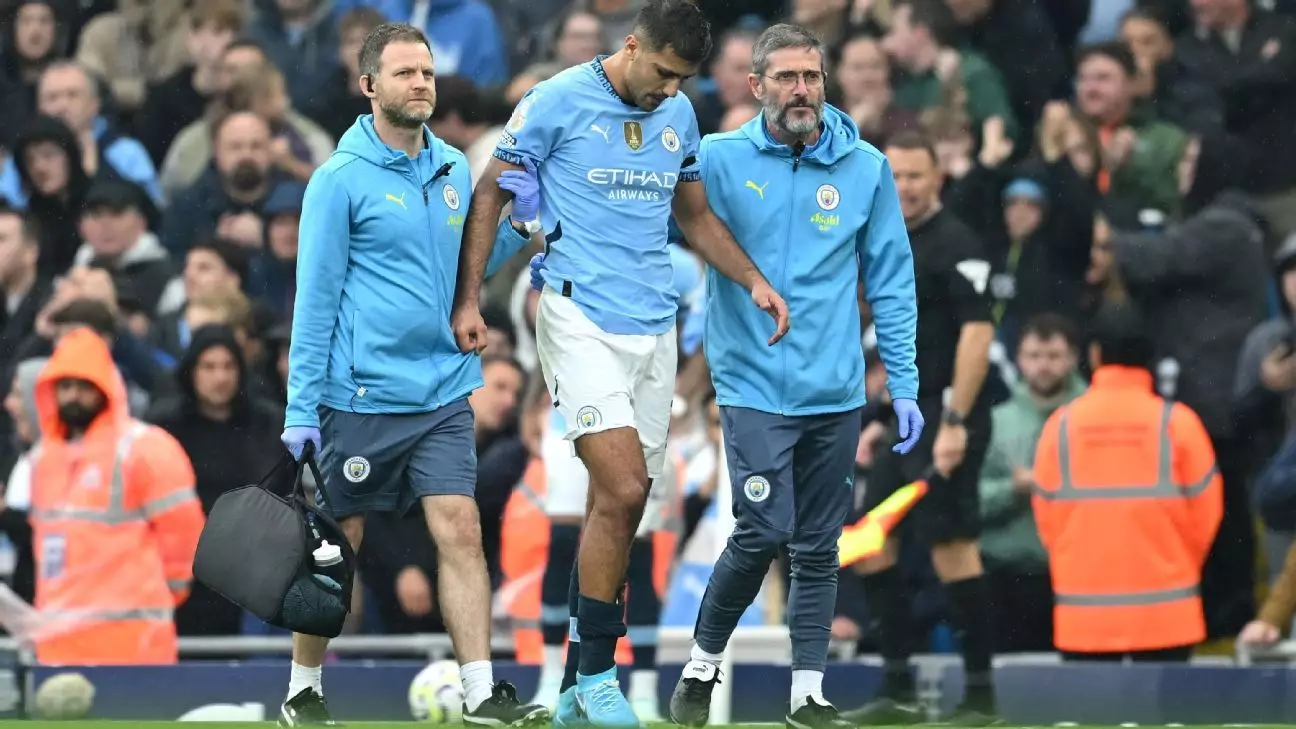Football, a sport beloved by millions, finds itself at a critical juncture as fixture congestion continues to mount, leading to intensified calls from players and stakeholders for a reevaluation of the existing calendar and competition structure. Recent statements from Javier Tebas, president of La Liga, underline a growing sentiment among top professionals regarding their suffocating schedules. As discussions heat up, the prospect of a players’ strike looms ever closer, fueled by player fatigue and worries about the long-term impacts of their current workloads.
The recent expansion of UEFA’s competitions along with FIFA’s restructuring of the Club World Cup has resulted in an unprecedented elongation of the football season. This season stands poised to be the longest in history, raising alarm over player welfare. Star athletes like Rodri from Manchester City have openly shared their concerns, suggesting that many players are contemplating drastic measures, including a potential strike.
In a world where the physical demands on players are already significant, Tebas’s reflections capture the gravity of the situation. The notion that professionals would consider striking is sobering and speaks volumes about the precarious balance between commercial interests and player health. Tebas emphasized that players, like any labor force, have the right to advocate for their working conditions. When the likes of Rodri express distress, it is indeed a wake-up call for everyone involved in the sport.
Adding to the chorus, Premier League managers including Pep Guardiola and Mikel Arteta have raised pertinent questions about player exhaustion. Real Madrid’s Carlo Ancelotti even suggested that players might be open to forgoing some of their salaries in exchange for a lighter schedule. This willingness to negotiate pay hints at a community aware of their limitations and desperately seeking solutions before the situation deteriorates further.
Javier Tebas articulates this concern with clarity—failure to recognize the growing fatigue among players, whom he describes as being pushed beyond reasonable limits, will lead to severe ramifications. In essence, a mathematical simplicity seems lost on football’s governing bodies, as they continue to overload the calendar despite evident signs of distress. For Tebas, the solution is straightforward; FIFA must engage more collaboratively with stakeholders to create a sustainable calendar and prioritize player welfare over expanded profit margins.
The current crisis illustrates a systemic issue demanding serious attention to ensure football remains sustainable for future generations. The relentless push for more competitions invariably leads to increased fixture congestion, undermining not just the players’ physical capabilities but also the quality of the matches themselves. When teams are stretched thin, the level of play suffers, ultimately harming the sport’s integrity.
A critical review of existing competition formats may reveal opportunities to streamline the calendar while considering player welfare. Some tournaments may well be candidates for reduction or complete elimination as part of a broader reform strategy. This approach could free up essential time on the calendar, allowing elite athletes the necessary rest to maintain their performance levels.
Amidst these pressing issues, La Liga is also looking to expand its global footprint, particularly through proposals to play games outside Spain, like a much-discussed match in Miami. Since 2018, this ambition has been held back, largely due to bureaucratic hurdles, including the absence of a president for the Royal Spanish Football Federation. While Tebas remains optimistic about conducting a match in the U.S., this initiative underscores yet another layer of complexity as La Liga navigates its priorities between expanding its brand and catering to the needs of its players.
As football grapples with an increasingly congested schedule, the dialogue surrounding player welfare has never been more critical. It is clear that stakeholders—from governing bodies to clubs—must listen to the voices of their players and prioritize their well-being. The sport’s future hinges on making informed decisions, ensuring that the game remains as exhilarating and competitive as fans have come to expect while safeguarding the health and careers of those who play it.

